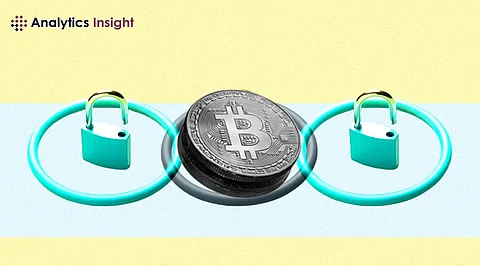

In the fast-paced world of cryptocurrencies, effective Bitcoin management is the key to navigating the volatile markets and maximizing returns. As we step into 2024, securing and managing your Bitcoin portfolio demands a strategic approach that goes beyond the basics. Here, we delve into a comprehensive guide that encompasses essential principles to fortify your cryptocurrency investments.
Diversification is a timeless strategy that transcends traditional finance and remains the cornerstone of a robust crypto portfolio. In the realm of cryptocurrency, where each digital asset exhibits unique characteristics, spreading your investments across various cryptos and different sectors helps mitigate risks. The goal is to avoid overexposure to the volatility of any single crypto asset, fostering resilience against market fluctuations.
Diversification extends beyond major cryptocurrencies like Bitcoin and Ethereum. Exploring promising altcoins and projects in various blockchain sectors can provide a broader spectrum of opportunities. By diversifying intelligently, you position your portfolio to weather market uncertainties while potentially maximizing returns.
Before immersing yourself in the vast and dynamic crypto market, it's crucial to define your investment goals. Are you aiming for long-term growth, seeking short-term gains, or pursuing a balanced combination of both? Your goals serve as the compass guiding your investment strategy and determining your time horizon.
Long-term investors may prioritize assets with strong fundamentals and sustainable growth potential, while those eyeing short-term gains might capitalize on market trends and trading opportunities. Clarifying your objectives empowers you to tailor your portfolio to align with your financial aspirations.
Thorough research is the bedrock of informed decision-making in the crypto space. Before adding any cryptocurrency to your portfolio, conduct due diligence on the project's fundamentals, development team, market traction, and potential use cases. FOMO (Fear of Missing Out) can be a powerful force, but relying on reliable information rather than succumbing to hype is paramount.
Staying vigilant against market noise and scrutinizing the authenticity of information sources is crucial. In the ever-evolving crypto landscape, knowledge is your shield against uninformed investment choices.
Assessing your risk tolerance is a fundamental step in effective portfolio management. Cryptocurrencies are known for their price volatility and market cycles. Being prepared for price fluctuations and acknowledging the inherent risks is imperative.
Invest only what you can afford to lose, and refrain from putting all your eggs in a single basket. Allocating your investments based on risk tolerance ensures a balanced and sustainable approach to crypto portfolio management.
The cryptocurrency market operates 24/7, and staying informed is non-negotiable. Keep abreast of the latest news, market trends, and regulatory developments. Reliable sources of information empower you to make timely and well-informed decisions.
Whether its regulatory shifts impacting the market or technological advancements influencing a particular cryptocurrency, being in the know is your competitive edge in the dynamic crypto landscape.
The crypto market is dynamic, and your portfolio should be too. Regularly review your crypto holdings to ensure they align with your investment goals and risk appetite. Rebalance your portfolio if necessary, taking into account the performance of different cryptocurrencies and the prevailing market conditions.
A periodic reassessment allows you to adapt to changing market dynamics, optimize your portfolio for current trends, and capitalize on emerging opportunities.
Join our WhatsApp Channel to get the latest news, exclusives and videos on WhatsApp
_____________
Disclaimer: Analytics Insight does not provide financial advice or guidance. Also note that the cryptocurrencies mentioned/listed on the website could potentially be scams, i.e. designed to induce you to invest financial resources that may be lost forever and not be recoverable once investments are made. You are responsible for conducting your own research (DYOR) before making any investments. Read more here.
